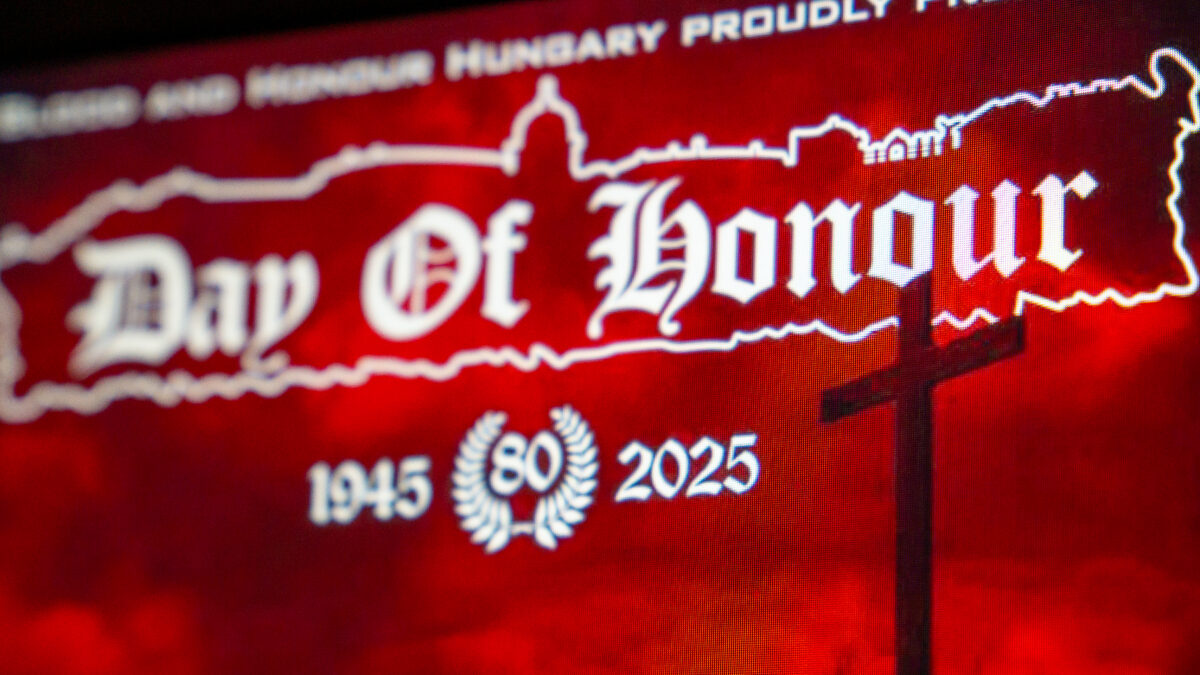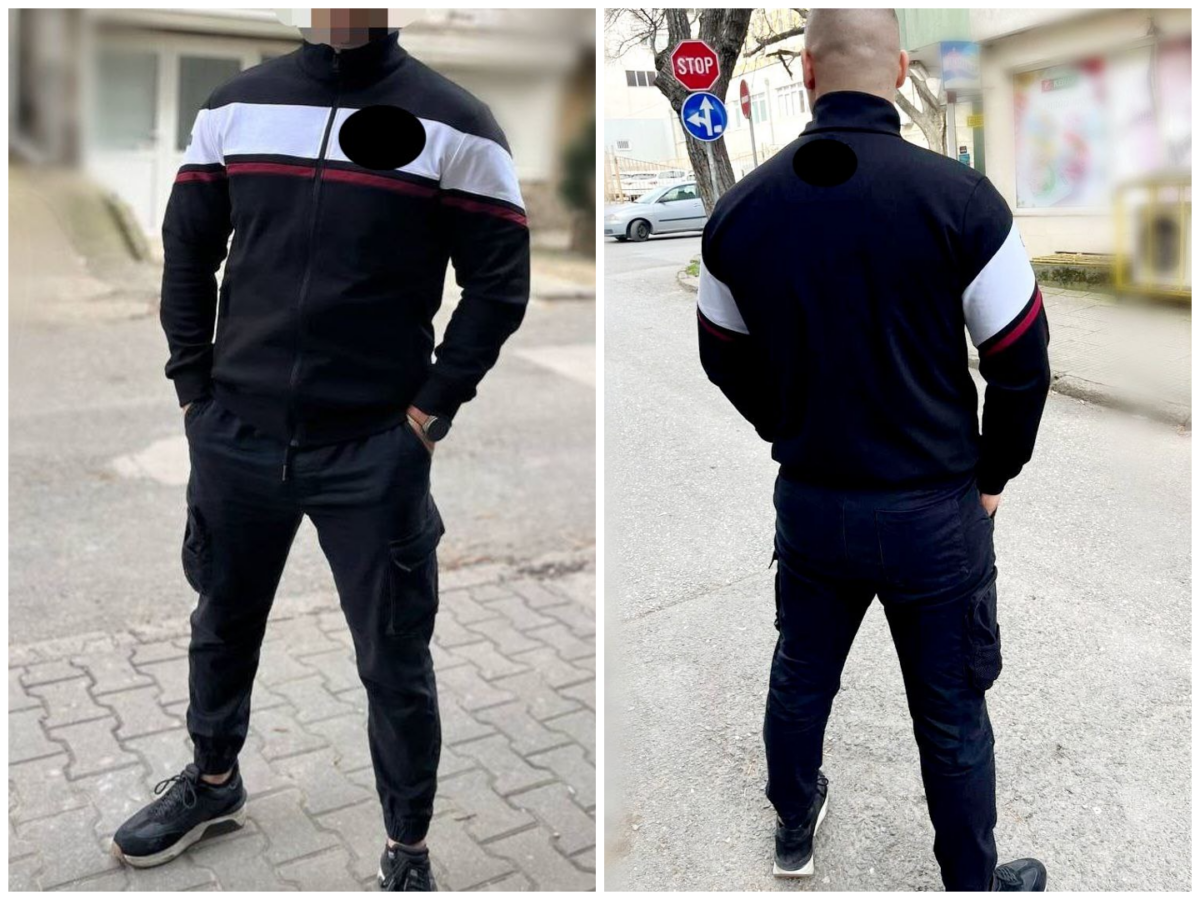International Far-Right Fight Night Comes to Budapest
This weekend, Budapest is due to play host to an event that far-right extremists have bragged online will be “the biggest radical nationalist event since coronavirus.”
Scheduled for 6 May, the organisers of ‘European Fight Night’ boast that the event in the Hungarian capital will feature up to 15 combat sports fights with participants from 12 different countries.
According to social media posts promoting the event, it will also play host to concerts and opportunities to buy merchandise from far-right fashion brands. Yet despite the publicity push, secrecy remains a priority. Similar events in Germany have previously been banned. Organisers have also stated attendees won’t be allowed to take photos or videos, and that they’ll kick out anyone who does or who shares the exact location of the event.
Observers have long sounded the alarm on the international far right’s use of combat sports to train up for physical confrontation and prepare for attacks against their perceived foes.
Some experts like Robert Claus, who wrote a book on the far-right martial arts scene, even say that combat sports events like European Fight Night also help facilitate international networking and recruitment.
Past research by anti-fascist groups has linked the organisers of European Fight Night to some of the most secretive far-right extremist groups in Europe — including violent neo-Nazi groups that have been banned in several countries. One of the organisers of European Fight Night has even discussed links to local chapters of these banned groups in previous media interviews.
Meet the Organisers
European Fight Night, at least publicly, presents itself as having three primary organisers: Hungary’s Legio Hungaria, Germany’s Kampf der Nibelungen (“Battle of the Nibelungs”), and Pride France.
In a video released on multiple Telegram channels on February 27, members of each of the three main organising groups appeared side by side to promote the Budapest event and encourage their far-right comrades across Europe to attend.
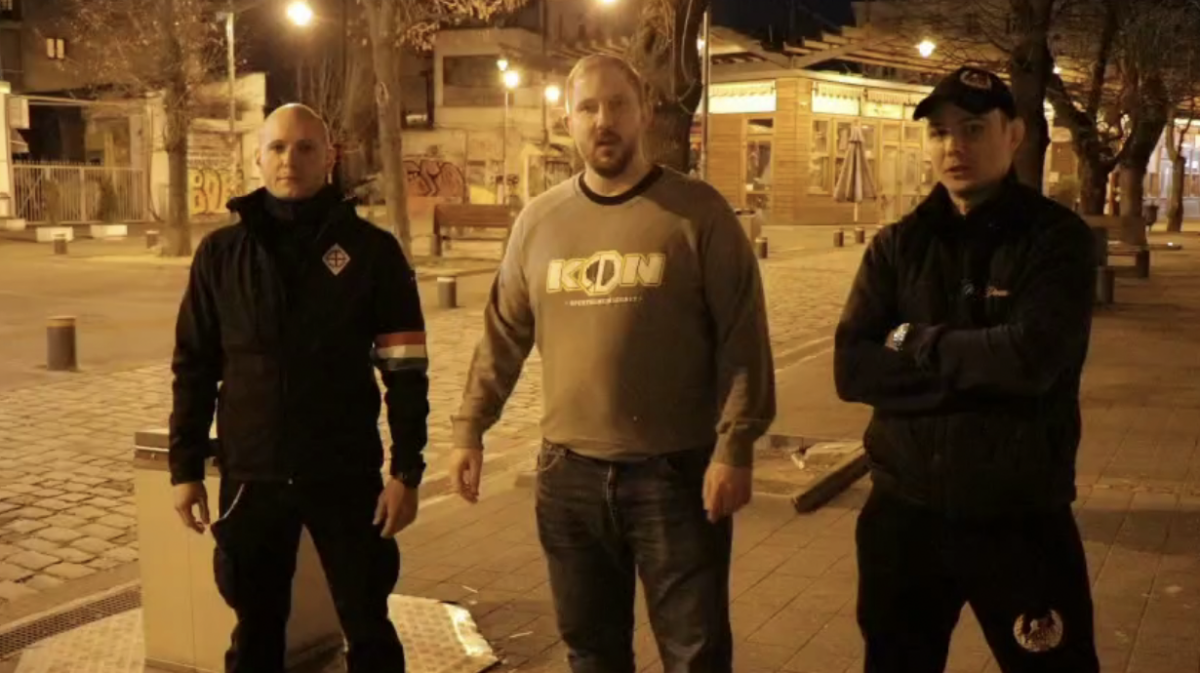
Béla Incze heads up Legio Hungaria, a small far-right extremist group from Hungary. Incze once served as an assistant to a far-right member of Hungary’s parliament before reportedly losing his job for assaulting a police officer. Legio Hungaria, while not a large group, has managed to garner attention for their actions since being founded in 2018, including vandalising a Jewish community centre in 2019, destroying a Black Lives Matter statue in Budapest in 2021 and reportedly assaulting journalists covering a far-right event in 2023. Bellingcat also revealed in a 2021 investigation that a senior Legio Hungaria member played a key role in racist and homophobic displays at Hungarian national team football matches.
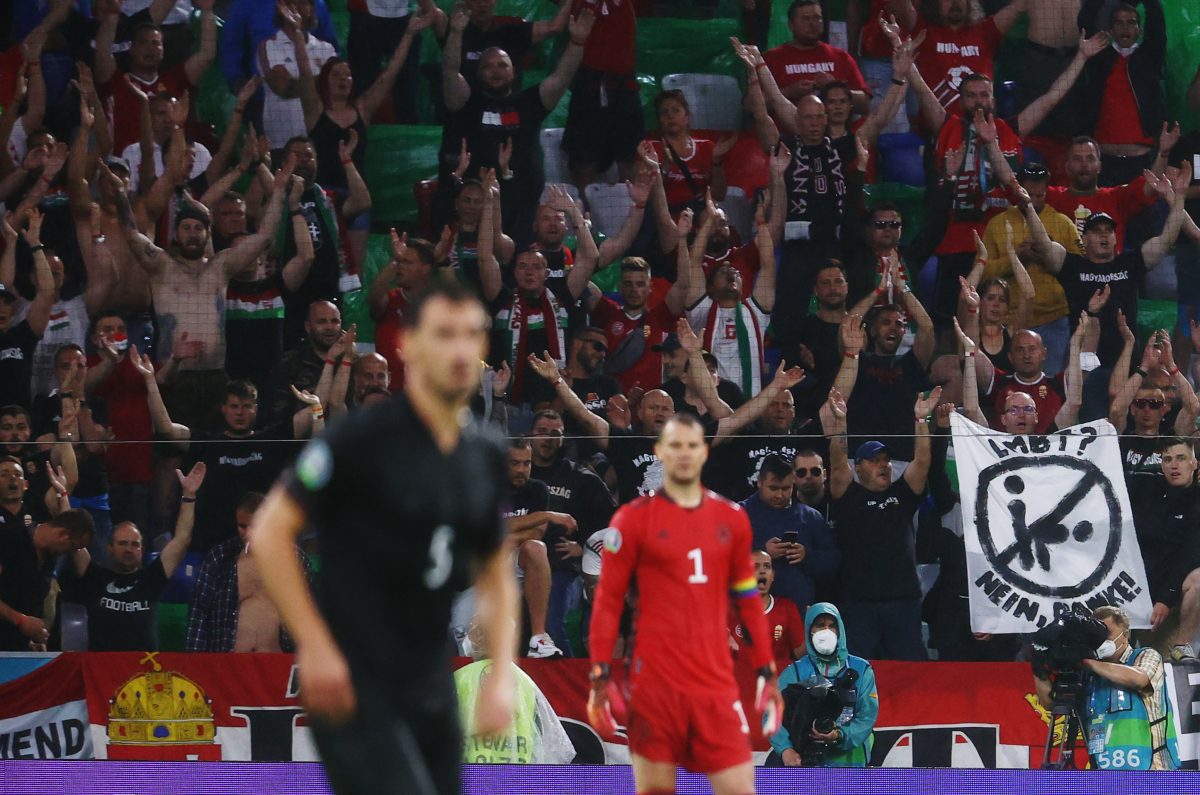
Alexander Deptolla is the public face of Kampf der Nibelungen. Started in 2013, Kampf der Nibelungen — often referred to by the abbreviation KdN — was once the largest far-right combat sports event in Europe, with its October 2018 version hosting an estimated 850 fighters and spectators. However, authorities in Germany banned the event in 2019, and KdN’s 2020 ‘online’ version saw fewer than half of the planned fights broadcast thanks to a police raid where some were being filmed ahead of time. Deptolla even took to social media afterwards to state that KdN wouldn’t be organising any more events in the immediate future. Nonetheless, German authorities reportedly restricted an abortive attempt at a September 2021 ‘National Fight Night,’ as a September 2022 court ruling upheld the ban on KdN’s events. Despite this, they are still the biggest of the three organisers of European Fight Night. Some German observers have argued that European Fight Night is essentially planned as a “replacement” event for KdN outside German borders.
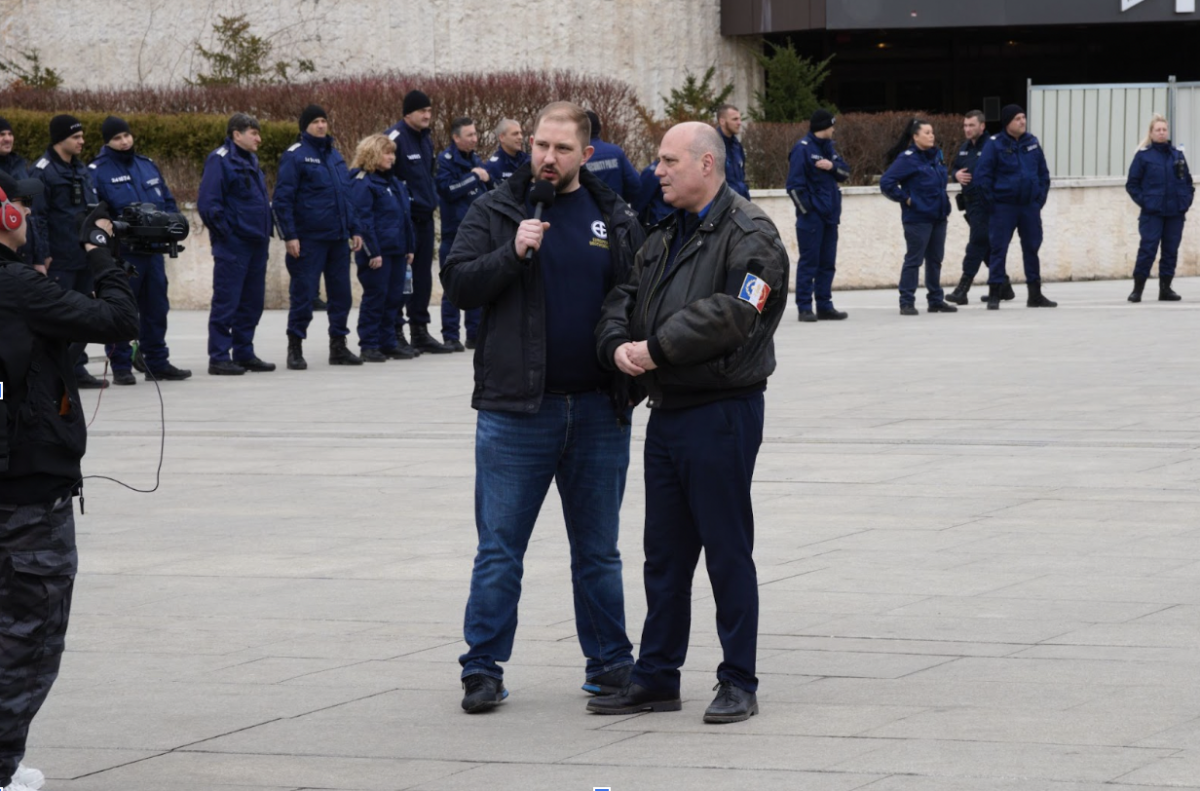
Tomasz Szkatulski of Pride France is a Polish-born French neo-Nazi who is reported to have helped organise and even participate in events like European Fight Night for several years. Szkatulski emerged from violent football hooligan scenes in the city of Lille, though now appears to spend much of his time in Bulgaria. Covered in Nazi tattoos, Szkatulski was reportedly convicted and sentenced to a year in prison in 2008 for assaulting a man of African origin with a bicycle chain; he has also reportedly been involved in other acts of violence, including alleged attacks on LGBT+ establishments. Szkatulski is also an associate of American far-right extremist Robert Rundo, who was arrested in Romania in March 2023 and is awaiting extradition to the United States.
Szkatulski did not respond to requests for comment from Bellingcat asking about his involvement in European Fight Night, past reports about his 2008 conviction (or alleged involvement in other apparent acts of violence), as well as his relationship and contacts with Rob Rundo.
When contacted by Bellingcat on Telegram to ask if he would like to respond to the details in this story, Deptolla of KdN said simply: “Hi. No thanks. Bye.” Legio Hungaria similarly declined to answer Bellingcat’s emailed questions about the details contained in this story and about Incze, citing unhappiness with Bellingcat’s reporter’s previous reporting on the group.
Behind the Scenes
There’s also a much less public side to European Fight Night and other far-right combat sports events, where some of the most secretive, publicity-averse extremist networks in Europe operate.
Germany’s Federal Office for the Protection of the Constitution (BfV), the country’s domestic intelligence agency, has publicly stated the members of the Hammerskins, an international white supremacist gang, have been involved in organising Kampf der Nibelungen events since 2013. Journalists and researchers have also extensively documented the Hammerskins’ links with KdN.
As noted in Bellingcat’s 2022 investigation of a planned far-right extremist concert in Belgium, the Hammerskins have a significant presence across Europe. They tend to be secretive about their activities but are organised, with chapters, hierarchies and different patches for prospects and full members. Members of the Hammerskins have been extensively involved in criminal activities, including assault and even mass murder.
But it isn’t just Kampf der Nibelungen that works with the Hammerskins. In a February 2023 interview with an American far-right extremist website, Incze stated that his Legio Hungaria organisation had “a strong relationship” with the Hungarian Hammerskins, evidenced by their appearance and central role in previous events Legio Hungaria has hosted.
Incze also said in the same February 2023 interview that Legio Hungaria cooperates with the Hungarian branch of international neo-Nazi organisation Combat 18. Founded in the UK in the early 1990s, Combat 18 is closely associated with the Blood and Honour neo-Nazi group that is banned in several European countries.
In his 2020 book on Europe’s far-right combat sports scenes, German author Robert Claus reported that Tomasz Szkatulski had been affiliated with Blood and Honour structures in France; his Blood and Honour affiliations have also been discussed in other reports, although Szkatulski did not respond to Bellingcat questions asking about this. Claus also told Bellingcat he had knowledge that Blood and Honour associates would be hosting a concert the evening of 6 May for European Fight Night attendees.
Bellingcat was not able to independently confirm this claim. However, Blood and Honour’s Hungary branch has also promoted European Fight Night on its Telegram channel.
“These networks are generally very much involved in [far-right combat sports] events, either by hosting them themselves or by providing important organisational aspects,” Claus told Bellingcat, referring to the Hammerskins, Combat 18 and Blood and Honour.
A ‘Fundamentally Violent’ Ideology
But barely a week ahead of the event, European Fight Night’s main organiser had already run into trouble. On April 28 Deptolla took to KdN’s Telegram channel to tell fans that he and other German far-right extremists had been banned by authorities from leaving the country to travel to Budapest. Claus told Bellingcat that this German travel ban could seriously impact the event, since KdN and its German comrades are the largest of the three main organisers.
Even if European Fight Night doesn’t go on quite as its organiszers have hoped, Claus says it is still a dangerous event. “Violent key figures and groups of the neo-Nazi scenes from different parts in Europe are expected to come to Budapest,” Claus told Bellingcat. “Their ideology is fundamentally violent, fascist activists [who] use combat sports to train for racist attacks and other kinds of brute force.”
With a concert and other events alongside the fights, Claus warned, “the international neo-Nazi scene gets its combination of violence and sports, political hatred and music, the cultural package which pre-terrorist neo-Nazism has to offer.”
Bellingcat asked Hungarian national police about the European Fight Night event, whether they were aware of it and whether they had taken or planned to take any steps to prevent the event from taking place, or prevent any specific foreign extremists from attending. They did not respond before publication.
Bellingcat is a non-profit and the ability to carry out our work is dependent on the kind support of individual donors. If you would like to support our work, you can do so here. You can also subscribe to our Patreon channel here. Subscribe to our Newsletter and follow us on Twitter here and Mastodon here.
Itt található a cikk magyar fordítása telexes kollégáinktól / Click here for a Hungarian translation of this article from our colleagues at Telex

